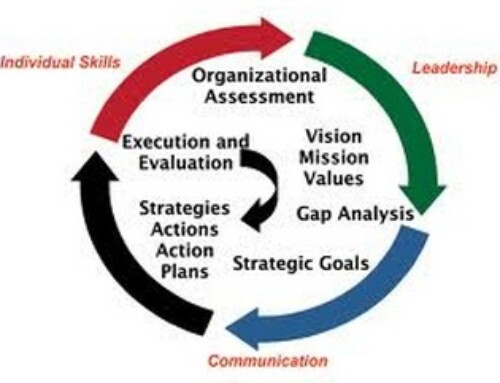WAV Group, RE Technology, and Zuora sponsored a webinar on the topic of non-dues revenue on February 15th, 2012. Panelists for the webinar included Jeremy Crawford of MLSListings.com, Melissa Olson of Metrolist Colorado, John Heithaus of Metropolitan Regional Information Systems, Kevin Green of Real Estate Digital, and Travis Hutch of Zuora. Victor Lund of WAV Group was the session moderator.
Overview
Associations and MLSs have been in the business of offering non-dues related products for some time now. They have sold yard signs, closing documents, certification training, and lock box products for years. The new horizon for non-dues revenue focuses around software products and advertising.
Generating non-dues revenue through advertising is simple. There are two channels for advertising revenue. Consumer-facing advertising on an MLS consumer-facing website or email notifications is the first channel. The second is business advertising to agents and brokers delivered through inside the MLS or tax system.
Software sales are more involved. The process of discovering and purchasing software in real estate is cumbersome to today’s professional. It’s archaic. But new MLS resources like RE Technology are changing that.
Today, agents and brokers can visit their MLS to learn about the products and companies that deliver solutions to help them sell more real estate. They can ask questions, see user ratings, and read reviews. However, the chief complaint is that there is no eCommerce.
Our experience with RE Technology over the past few years has taught us that the real estate industry is hungry for an app store. Your customers want to “click to buy.” The MLS is a natural place to deliver the app store for three reasons:
- First, the MLS is already a trusted source, providing the most fundamental software services to the real estate professional.
- Second, the MLS is convenient. Agents and brokers visit the MLS more than any other professional website on the Internet.
- Third, the MLS knows technology. The MLS has proven that it can select and distribute software efficiently – reducing sales costs for software vendors and, in turn, reducing prices for its members.
Jeremy Crawford MLS Listings
MLSListings serves 8 Associations of REALTORS®. Brokers comprise their Board of Directors. Their governance dictates that the Board of Directors only reviews Policy, not the activities of the MLS. Associations are service centers. By developing non-dues revenue strategies, MLSListings has made an impact on revenue that has offset operational costs.
The goal of their advertising program and software sales program is to reduce their dependence on dues. This has been driven by the loss of 8000 subscribers between 2007 and 2011.
Here are a few key facts about MLSListings:
- MLSListings does not license products beyond core MLS services.
- MLSListings uses the same three-party data license agreement for products that they offer.
- 5% adoption of products is a decent goal for the first year.
- The best-selling products are IDX and virtual tours.
- MLSListings follows a strategy to limit the number of partnerships and create a number of exclusive or semi-exclusive vendor relationships.
MLSListings advises that an MLS should budget around $50,000 to launch an eCommerce platform and contemplate 100 staff hours for each product launched in the program. Their eCommerce solution is tied into Salesforce.com – a leading enterprise CRM solution that they have customized for their company.
MLSListings prepares their trainers and call center operators on handling support calls for each product, but requires vendors to provide support.
Revenue from advertising on MLSListings.com averages around $1 – $2 per thousand ads served. MLSListings is making their advertising network available to other MLSs who seek alternatives to today’s advertising offerings.
John Heithaus – CMO, MRIS
MRIS is launching phase two of their program later this spring or early summer. They call it “Gen M.” Gen M is focused around three modes of delivering services to the subscriber: Core Services, Premium Services, Freemium Services. With their non-dues revenue program, MRIS has been able to diversify revenue dependence on dues.
Many of the strategies of MLSListings are similar at MRIS. The key for MRIS is deep integration into the MLS system. As agents perform tasks, Premium solutions will be offered.
For example, an agent adding a new listing may be offered a virtual tour, or Imprev may dynamically generate a flyer that can be emailed or printed.
MRIS firmly believes that these programs are for the benefit of their agents, brokers and shareholders. Through these programs they effectively deliver better products at lower costs and expand their revenue diversity.
Melissa Olson, Metrolist CO
Metrolist manages about 65% of all listings in Colorado. Today, 15% of revenue comes from non-dues programs. Metrolist launched their store in November 8th, 2011. The program helpful at offsetting increases in the cost of delivering MLS services.
Metrolist’s strategy is to offer broad selection of products rather than limited or exclusive products. Metrolist also offers products to consumers and appraisers.
Metrolist believes that product offerings integrated into behavioral activities inside the MLS is the future.
Revenue sharing ranges from 5 to 50% on the 60 products they offer.
They separate marketplace purchases from MLS core services in their billing process.
Kevin Green, VP Sales, Real Estate Digital
Real Estate digital is working with 27 MLSs on some type of non-dues revenue program. They offer an advertising network, along with agent websites, IDX, CRM, document management, and other common agent and broker business solutions. By working with RED, MLSs are able to deepen their service levels and generate new revenue to offset increasing costs of operating the MLS.
Green believes that MLSs should be looking to diversify their strategies to blend dues revenue with revenue from premium services.
Travis Hutch, VP Sales Zuora
Mr. Hutch provided an overview of their services. They are the vendor of record for the shopping cart that MRIS and MLSListings are deploying. Zuora is leading provider solutions for integrating billing as a service into CRM. They are among the leading providers of billing in a box. It is an impressive solution.
RE Technology
RE Technology provides a free resource to MLSs looking to provide technology training and education to their subscribers. Today, more than 60 MLSs reaching about 700,000 subscribers have access to RE Technology. RE Technology recently launched the Success Store and Success Tracker. Success Store attaches to RE Technology to support eCommerce on products offered by MLSs. Success Tracker links RE Technology to eCommerce solutions outside of RE Technology for payment management.






Great piece Victor. Just yesterday I was searching like mad for the article describing MRIS’s shift to a services model. Having visited several client organizations lately and throwing issues like thin on the table, the question isn’t so much “if” regarding a shift away from a strictly subscriber-per-month model, but “how”. This compilation you’ve put together answers much of that. Hopefully, some of my mid-sized clients will see this as inspiration and we can, together, begin to rethink both MLS and how it’s delivered.
Great post Victor! We need some leadership from the MLS organizations, who need to recognize the value of their operations. Many still think the MLS is the old “MLS book online” and it’s just not. APIs, Metered Web Services, Ad Placement, etc are all ways MLSs can monetize their data sets BEFORE we even talk about syndication. But, sadly, Solid Earth still has accounts that don’t even allow a consumer portal, leaving the Realtor brand in those markets open to competition from alternative business models. Thanks for advancing the conversation, again, maybe it’ll help us move the ball down field a little more in 2012.
There are a few customers that you have (like Birmingham) that could have a store operational by the end of the day today if they just turn it on at RE Technology.
Boil all this down to less than five key points and a simplified concept that I can easily understand (as well as present) and Birmingham could be turned on by the end of the day. Unfortunately, it is a confusing and difficult to understand concept for us poor Realtors – even those of us who are somewhat tech-savvy.
Chip – call me next week, after Tuesday, March 27th – we can help 805-709-6696
Hi Folks!
Since we’re mentioned here by name, I thought I’d chime in on the conversation.
BAMLS is working hard to plug in to non-dues revenue models and has been focusing on this for the past few years. Of course, our leadership considers the value a product or service will add to the general membership first. I think that RE Technology is the perfect outlet for “The App Store for Real Estate” and was somewhat pitched as such to our membership when we launched it. I will admit, we haven’t used it to its full capacity, but I will be working closely with Melissa McHone over the next few weeks to change that.
I’m looking forward seeing how our organization will evolve over the next 12 months. There are so many exciting things in our future. I appreciate webinars like this from the industry which help the volunteer leadership see how these ideas come to fruition in other markets (MRIS and Metrolist are two of my faves).
Thanks for your work, Victor! And for the shout-out 😉
I’m glad to see that non-dues revenue is beginning to get some attention. Technology Concepts built an App Store capability into its Eventus MLS system, but was not able to generate much interest. Poor marketing, poor timing, or not marketed to the right boards? Probably all of the above.
We actually replicate MLS data from RETS over to SQL and are running backend analytics deep within our own data, in-house.. I say MLS data, but it is the Firm’s data… The MLS should be looked to as the data warehouse for its own independent region…
There is a problem when search giants IPO and make millions off of this data, and the data owners (brokers) have agents having to shell out more and more money to access their own data…
With some firms looking at the MLS as a competitor (which it is not!) The MLS community needs to offer its members technologies from BI and Predictive Analytics that an individual firm would not normally have access to.., I say normally, because the overuse of syndication and re-syndication (For example the Listhub product if all options are checked actually was as of about 8 months ago, seeding data to appx. 620 different sites although only 30-some were listed.. Companies like Oodle re-syndicate to their own subsidiaries and partner-channels) has put the firm/mls data so far “out there”, that unless the MLS puts its foot down and CONTROLS ITS MEMBNERS OWN DATA under the typical copyright protection it has and is entitled to, (assuming the MLS files regularly)…
The MLS that survives will be the MLS who doesn’t control its data, doesn’t keep the data safe, doesn’t sign up with every joe schmo vendor… But the MLS who survives will be the MLS who utilizes that data and provides their members with enhanced data services, and innovative technologies.
Members do not care about the member side benefits.. The landscape has changed and the MLS who is not technically adept and advanced will falter or be swallowed up by the MLS who did decide to change its business model and place emphasis on the technologies they can offer internally, reels back on the syndication reigns, and becomes their market data warehouse and report provider..
What HAS become competition with firms and the MLS, it the Realtor.com, the Zillows and the Trulia’s of the world…
Vendors are making millions for the pennies the MLS and its members benefit from…. One day maybe the MLS will realize how much money they have made others, when they could have been doing this on their own and reducing their member dues in the process.